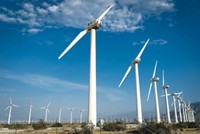Advertisement
Grab your lab coat. Let's get started
Welcome!
Welcome!
Create an account below to get 6 C&EN articles per month, receive newsletters and more - all free.
It seems this is your first time logging in online. Please enter the following information to continue.
As an ACS member you automatically get access to this site. All we need is few more details to create your reading experience.
Not you? Sign in with a different account.
Not you? Sign in with a different account.
ERROR 1
ERROR 1
ERROR 2
ERROR 2
ERROR 2
ERROR 2
ERROR 2
Password and Confirm password must match.
If you have an ACS member number, please enter it here so we can link this account to your membership. (optional)
ERROR 2
ACS values your privacy. By submitting your information, you are gaining access to C&EN and subscribing to our weekly newsletter. We use the information you provide to make your reading experience better, and we will never sell your data to third party members.
Environment
Heat-Related Deaths Could Jump
Climate Change: A popular air pollution model simulates the health impacts of rising temperatures in the U.S.
by Janet Pelley
January 28, 2011

Heat is the leading weather-related killer, ending more lives than do hurricanes, floods, tornadoes, and lightning combined. Experts agree that climate change will boost the number of these deaths, but predicting how many people will die has been challenging. Now researchers at the Environmental Protection Agency have simulated the future health effects of rising temperatures and found that heat-related deaths in the U.S. could increase greatly in the next few decades, with estimates ranging from 3,500 to 27,000 additional deaths per year (Environ. Sci. Technol., DOI: 10.1021/es102820y).
Extreme hot weather strains the heart and lungs, causing heart attacks, strokes and respiratory disease in vulnerable individuals, says Kristie Ebi, a staff member of the Carnegie Institution for Science, a non-profit research organization, who was not involved in the study. Previous projections of how climate change could affect heat mortality have tended to focus on small geographic areas, she says.
To produce estimates for the U.S. as a whole, the EPA researchers tinkered with the Environmental Benefits Mapping and Analysis Program (BenMAP), a free downloadable computer model that EPA and others have used to analyze health and economic benefits from changes in air pollution. "Instead of a change in air pollution, we applied a change in temperature over time to look at health impacts," says Scott Voorhees, an environmental scientist at EPA.
In the model, the scientists divided the U.S. into 15,912 grid cells, each 36 km2. They then adjusted results from the National Aeronautics and Space Administration's global circulation model, a well-studied computer simulation of climate, to estimate temperatures in each cell for two time periods, the five years from 1999 to 2003 and from 2048 to 2052. The NASA model generated temperatures for the warm season from May to September that were roughly 2 °C higher in the future scenario, a result that matches previous estimates of climate change. To determine heat-related health effects, the researchers relied on results from five previous epidemiological studies that calculated the risk of dying associated with changes in temperature.
The EPA simulations estimated that heat-related deaths could increase by 3,500 to 27,000 deaths per year by mid-century. In comparison, there were about 3,400 total deaths between 1999 and 2003. The authors caution that their study didn't address many variables known to affect heat mortality, such as how people adapt to hot weather. But the magnitude of these estimate increases underlines the importance of quantifying the public health impacts of climate change, Voorhees says.
Because many researchers use BenMAP, says Kim Knowlton, a senior scientist at the environmental group the Natural Resources Defense Council, "This research may inspire more follow-up studies of heat-mortality on a more-local scale.' Researchers could also use BenMAP to evaluate the health and economic impacts of alternative policies to cut greenhouse gas emissions, Ebi says.




Join the conversation
Contact the reporter
Submit a Letter to the Editor for publication
Engage with us on Twitter